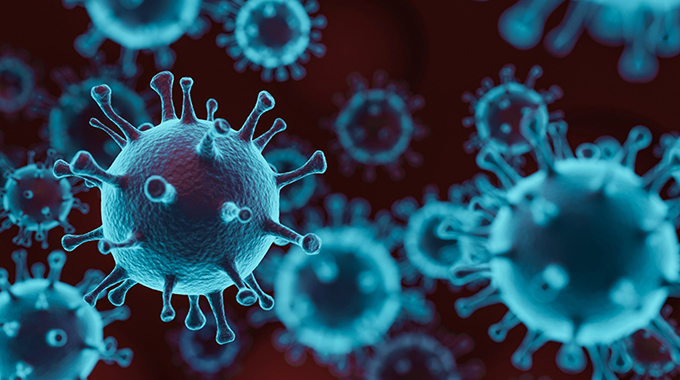Covid-19 jab: Die trying or die crying

Dr Masimba Mavaza
Correspondent
THE majority of the black ethnic societies have got their minds set against getting a vaccine for Covid-19.
The major reason of this fear is the general mistrust caused by the long history of inequalities discrimination and segregation.
But now that effective vaccines for Covid-19 have been developed and are being distributed to members of the public, it is key for people to understand the benefits of the vaccines and why they greatly outweigh mild potential side effects or inconvenience that may be associated. This will put to rest the rumours and unsubstantiated social media campaigns against vaccination.
The possibility of serious complications for anyone who gets the virus — along with the public health consequences of the pandemic’s continuing its course — are strong reasons for getting vaccinated.
While the latest test results from Oxford University and AstraZeneca include an efficacy score of 70 percent, significantly lower than the results of competitors, the new vaccine bears other advantages.
These include the ability to be transported and stored at temperatures closer to room temperature, more efficient production and being sold at cost throughout the duration of the pandemic.
Getting vaccinated is a safer way to help build protection against Covid-19, the disease caused by the novel coronavirus.
A vaccine can cause mild side effects after the first or second dose, but the side effects are far less than the advantages.
It is understood that some people may be concerned about getting vaccinated now that vaccines are available and being rolled out in many countries.
While more Covid-19 vaccines are being developed as quickly as possible, routine processes and procedures remain in place to ensure the safety of any vaccine that is authorised or approved for use.
The vaccine’s rapid development does not mean it is less safe. Vaccine development often takes a long time, but this is not the case for the Covid-19 vaccinations.
This is because it was not hindered by the typical issues vaccine development encounters; the first being little commercial interest for them and thus less funding, and the second being that trial participants and infections are hard to come by. There was no shortage of money, trial participants or infections for Covid-19 vaccines, but we have also been lucky and the vaccines work.
We cannot reward efficiency by snubbing the vaccine. The vaccine is for your own good.
The current Covid-19 vaccines have been tested in more patients than most previously approved vaccines, thus making them effective and a must take for all.
Though experience with the current Covid-19 vaccines only covers about six months, the method of the Oxford/AstraZeneca vaccine have been found safe in clinical trials for more than 10 years and mRNA vaccines such as the BioNTech/ Pfizer and Moderna for more than three years.
Hence, the vaccines are as safe as they can be, having been tested in more patients than would normally be possible. The Covid-19 vaccine will protect you and others from the virus and help end this pandemic.
People with medical conditions may be concerned about the vaccine, Duke Health experts said having a medical condition can increase your risk of getting very sick if you are infected.
“One of the great things about these vaccines is that they can be used in a wide variety of individuals,” said the experts. “The benefits of getting vaccinated most often outweigh the risks of getting sick.
“It is, therefore, plausible to die trying than to die crying. Covid-19 vaccines were evaluated in clinical trials and have been approved because those studies show that the vaccine significantly reduces the probability of contracting the virus.
“Based on what has been proved about vaccines for other diseases, the Covid-19 vaccine may help keep you from getting seriously ill, even if you do get the virus.
“Getting vaccinated also may protect people around you — particularly those at greater risk for severe illness from Covid-19.
“The scientists developed the strategy and drug quickly and the resulting vaccine works at an almost unprecedented level of effectiveness. It should be stressed that none of the Covid-19 vaccines contain the live virus that causes Covid-19, so a Covid-19 vaccine cannot make you sick with Covid-19. It merely protects you from the disease.”
The vaccines do not contain the complete virus and are not infectious, so they simply cannot cause Covid-19. In patients with immune defects or a weakened immune system, they may be less effective, but will still be safe.
Stopping a pandemic requires using all the available tools. Wearing masks and social distancing help reduce exposure to the virus or spreading it to others, but these measures are not enough. Vaccines work with your immune system, so it will be ready to fight the virus in the event of exposure.
The combination of getting vaccinated and following WHO recommendations to protect yourself and others provides the best protection from Covid-19.
Ending the Covid-19 pandemic will halt the growing negative impact the virus is having on education, the economy, health care and countless other activities.
We must remember that the public health benefit of the vaccine is the main reason for its use. This is done so that we can have a normal society and lead normal live again.
We can enjoy daily life without masks and without fear. We will once again enjoy regular shopping trips and dining out and family vacations without worry.
We can have real holiday activities instead of virtual ones. This can be achieved if we all come together and be vaccinated.
“The main concern about the Covid-19 vaccines has been among people with a severe allergic reaction to polyethylene glycol (PEG) or polysorbate,” said Dr Schmader.
“These ingredients are similar, but not identical to components in the currently approved Covid-19 vaccines. The CDC recommends that people with this allergy not get the vaccine.
“Similarly, the CDC recommends that people not receive the second dose if they had a severe allergic reaction following the first dose. The incidence of this occurring is low, about one in six per million doses. If someone had an anaphylactic reaction, they should not get the second dose. This does not suggest that the vaccine is most likely to cause the said side effects. These are only rare effects.”
The Covid-19 vaccines are a new type known as mRNA (messenger vaccines).
These mRNA vaccines give instructions to our cells to make a harmless piece of what is called the spike protein.
The spike protein is found on the surface of the virus. Covid-19 mRNA never enters the nucleus of the cell, which is where DNA (genetic material) is stored. Once the instructions are inside your muscle cells, the cells use them to make the protein piece, then the cells break down the instructions and get rid of them.
Next, the cell places the protein piece on its surface. The immune system spots the protein and begins building an immune response and making antibodies to fight the infection. At the end of this process, our bodies learn how to protect against future infection.
“The Covid-19 vaccine is recommended for people who are actively being treated for cancer,” said Dr Saullo. “There is no reason to think the vaccine is unsafe for patients with cancer.
“In fact, people with cancer are more susceptible to serious Covid-19 illness. That’s why they are listed among the first groups to receive the vaccine. But those in active treatment should not be encouraged to take the vaccine.
“Because cancer patients in active treatment were not part of the clinical trials, the vaccine’s effectiveness in this patient population is still unknown. Having a vaccine that is somewhat effective is better than no vaccine at all.”
Getting vaccinated may also protect people around you, particularly people at increased risk for severe illness from Covid-19.
Experts continue to conduct more studies about the effect of Covid-19 vaccination on severity of illness from Covid-19, as well as its ability to keep people from spreading the virus.
There is no chance for the vaccine to interfere with the DNA. This is because the vaccines do not interact with DNA, hence a manipulation of DNA is technically impossible.
Most side effects are caused by the desired immune response. Most of the reported side effects during the trials were caused by the immune system response. Many infectious disease symptoms are caused by the immune system, not pathogens.
Unfortunately, people get sick all the time, also independently of Covid-19.
Given the size of the Covid-19 vaccination programme, it is inevitable that some people will develop health conditions shortly after vaccination, the causes of which have nothing to do with the vaccine. Again, the Covid-19 vaccine is recommended for pregnant women, a group in which the risk of severe Covid-19 is substantial, Dr Schmader said.
“We encourage all pregnant people to ask questions and discuss their concerns with their providers. The risk of a bad reaction from the vaccine is low. The benefit of getting the vaccine is high,” he said.
Based on what we know about vaccines for other diseases and early data from clinical trials, experts believe that getting a Covid-19 vaccine may also help people from getting seriously ill.
Many in our society have conditions preventing them from developing an effective immune response to vaccination, which makes them highly vulnerable to Covid-19.
We do not know the extent to which the Covid-19 vaccines will prevent individuals from being able to transmit the virus.
However, since they protect individuals from disease, we can be reasonably sure they reduce the likelihood of disease transmission. Therefore, you will protect others by getting the vaccine. Vaccination is meant to make you survive, and not to kill you.
Without a vaccine, eventually we all will become infected, probably more than once.
No serious side-effects have been found in the tens of thousands of people that have received the Covid-19 vaccines.
Therefore, the world is a safer place with a Covid-19 vaccine than without.
While children were not part of the clinical trials for the approved Covid-19 vaccines, studies are underway to determine if they are safe and effective for them as well..
Wearing masks and social distancing help reduce chances of being infected or spreading the virus to others, but these measures are not enough.
The combination of getting vaccinated and following World Health Organisation recommendations to protect yourself and others offer the best protection from Covid-19.
Even after vaccination, it’s important to continue to follow the safety precautions that have worked to limit the spread so far: Wear a mask, practice social distancing, wash your hands and stay home if you are sick.
The more people getting vaccinated, the greater success of the vaccination campaign.
Vaccinations work well if the majority of the people get a jab. The more people don’t have the vaccine, the more flare-ups of the disease there will be over time.
Vaccines will not resolve all of our Covid-19 problems, but they will enable us to progress to a new normal.
Let’s do our duty, let’s get the jab and stop discouraging others.








Comments